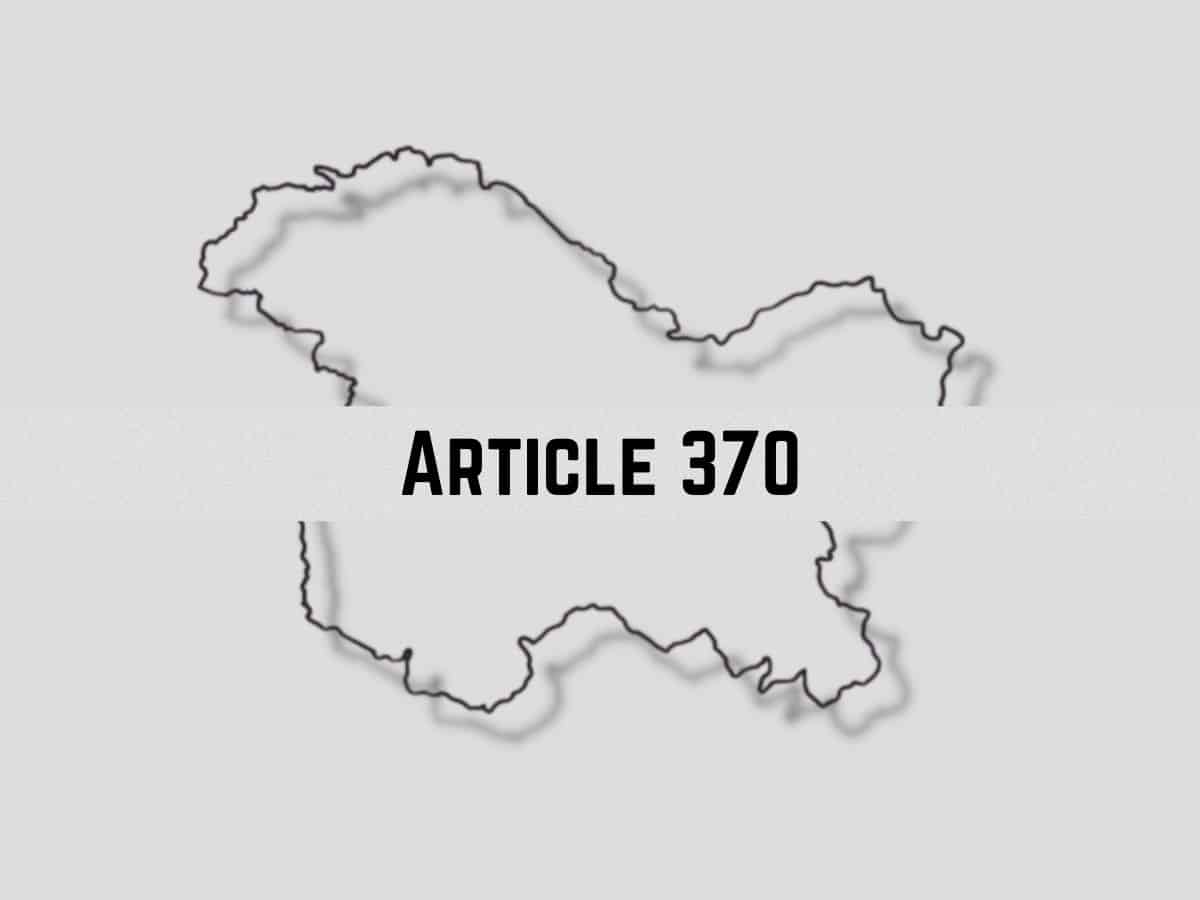
Jammu and Kashmir politics is roiling at the moment as barbs are being exchanged as to who played what role during the abrogation of Article 370 in August 2019 in the wake of the claim of senior advocate Rakesh Dwivedi in the Supreme Court that MPs from Jammu and Kashmir were taken into confidence prior to the decision of doing away with the constitutional provision. Added to that is the controversy surrounding erstwhile Congress leader Ghulam Nabil Azad’s induction into the government-appointed panel of “one nation, one election” headed by former President Ram Nath Kovind, as it is seen as a reward and recognition of his more than willingness to play the tune of the Centre.
Dwivedi, who defended the abrogation of Article 370 made an explosive revelation that the MPs from Jammu and Kashmir were taken into confidence at the time of the abrogation of the controversial constitutional provision has stirred politics in the Union Territory, as finger-pointing has started as to who stabbed in the back of the state’s special status in August 2019. In common perception in the Muslim-majority Kashmir Valley, there is simmering anger over the people who contributed to the abrogation of Article 370.
As of August 2019, Jammu and Kashmir had 10 MPs- four in Rajya Sabha, and six in Lok Sabha. Of the four in Rajya Sabha one belonged to BJP, as did three out of six in the Lok Sabha The regional group National Conference had three members, including its president Farooq Abdullah, and PDP had two members in Rajya Sabha. Ghulam Nabi Azad, also the leader of the opposition in RS, belonged to Congress at that time.
It is understandable that all four BJP MPs, vigorously supported the abrogation of Article 370, as per their obligation to the saffron party and its ideology, and more than that as a demonstration of their loyalty to Prime Minister Narendra Modi, whose charisma had brought them to the Parliament. The needle of suspicion has moved to the NC and PDP MPs. A question has popped up that if these MPs didn’t have their way as against the vast majority of the BJP’s numbers in Parliament, why didn’t they resign?
Two MPs of PDP who retired in February 2020 had drawn closer to the administration of the day, displaying no regrets over their inability to resign from RS after the abrogation of Article 370. This created distances between the party president Mehbooba Mufti and the two MPs. The estranged relationship has not reversed till date. NC, however, defended the action of staying in the Parliament, saying that they were mandated to represent the people of their constituencies in the House
Apni Party chief Altaf Bukhari minced no words, he said that it is evident that Azad and NC and PDP members in the Parliament did not quit, as they were party to the decision of the abrogation of Article 370. “They betrayed people, had that not been the case, they should have resigned “, and he asked the people at a rally in Sopore, why didn’t they resign.
This is the reality that the people in Kashmir have seen. This question is becoming more troubling as the people saw these parties coming together under the umbrella of the “People’s Alliance for Gupkar Declaration “- PAGD that had committed that it would not rest till Article 370 is restored. They had committed in their declaration on August 22, 2020: “We all reiterate our commitment to collectively fight to restore the Special Status of J&K as guaranteed under the Constitution and the made from time to time. There is unanimity amongst us that collective institution is the effective way to fight for these rights and tirelessly struggle to get back the special status and restore the Constitutional guarantees forcibly taken away against our will. We want to assure the people that all our political activities will be subservient to the sacred goal of reverting to the status of J&K as it existed on August 4, 2019.”
The signatories to this statement of commitment were – NC President Farooq Abdullah, PDP chief Mehbooba Mufti, then PCC president Ghulam Ahmad Mir, CPM leader M Y Tarigami, People’s Conference chief Sajad gani Lone and Muzaffar Shah, vice president of Awami National Conference.
But thereafter, the Alliance contested District Development Council polls on the claim that it wanted to stop BJP, the party that did away with Article 370, from having an open field. The context was given a moral and political colour to justify participation in the elections. The results also demonstrated that there were many chinks in its armoury as the parties had fielded their candidates violating the political ethics of the seat-sharing arrangement.
At the same time, the induction of Azad into one nation, one election panel by the Government, has been termed by Congress in J&K, as a reward to him for his services to the current government. This has put Azad’s position at odds with the ideology of secularism and his opposition to Article 370. It is stated that Azad was just trying to mislead the people.



